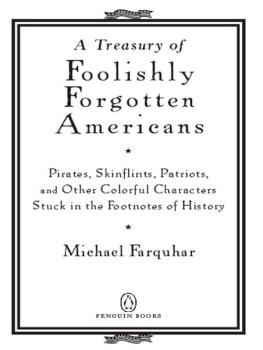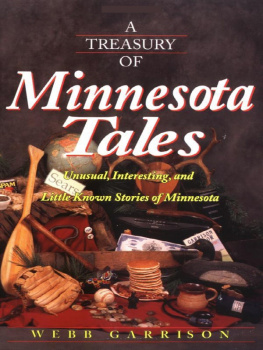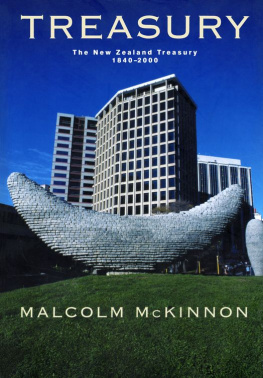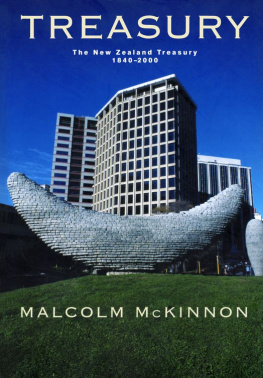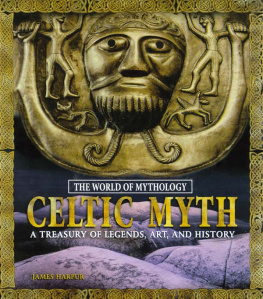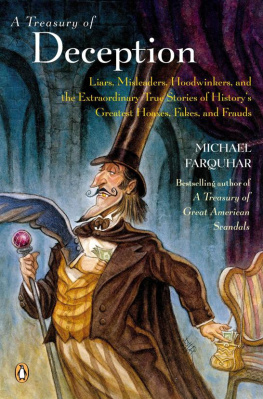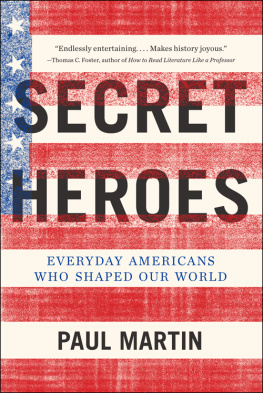1. It is often erroneously stated that Billingtons was the first execution in the American colonies. That distinction actually belongs to Captain George Kendall, who, in 1608, was put to death in Virginia after being charged with spying for Spain.
1. The 260,000-square-mile territory included the modern states of Ohio, Indiana, Illinois, Michigan, Wisconsin, and parts of Minnesota.
2. The deed is memorialized in the Rotunda of the U.S. Capitol, though some historians question whether it was actually Johnson who killed Tecumseh. The evidence is inconclusive, but Johnson remains the most likely candidate.
3. Jackson and Calhoun had strongly opposing views on the role of government. The vice president was a proponent of a states right to nullify federal laws deemed not to be in its interest. The president, while a believer in states rights, saw this concept as a dangerous threat to the stability of the Union. Their differences on the nullification issue became glaringly apparent at a Washington dinner in 1830 when President Jackson exclaimed in a toast, Our Union; it must be preserved, while staring straight at Calhoun. The vice president then responded with a toast of his own: The Union. Next to our liberty, the most dear. The clash over nullification and other issues eventually led to Calhouns resignation.
4. For a full treatment of the Eaton Malaria, see the authors A Treasury of Great American Scandals: Tantalizing True Tales of Historic Misbehavior by the Founding Fathers and Others Who Let Freedom Swing .
1. In one review from 1847, the New York Courier and Enquirer found his whole style rough, unrefined, heavy, and laborious. His gentlemen are not such as Shakespeare drew; they are great roaring boys that cry like fat babies, and puff and blow like sledge men.
1. Kemble, an English actress and author, was married to Pierce Butler, a member of this barbarous aristocracy, from 1834 until their divorce in 1849. The horrors of human bondage that she observed firsthand at her husbands Georgia plantation, and later wrote about, inspired her antislavery activism. I have sometimes been haunted with the idea that was an imperative duty, knowing what I know, and having seen what I have seen, to do all that lies in my power to show the dangers and the evils of this frightful institution, she wrote to a friend a year after leaving Butler. Her diary was published twenty years later.
2. Whatever else this man may be, Frederick Douglass remarked after first meeting the president, he is no friend of our race.
1. The Northern Paiutes of the Great Basin in western Nevada, northeastern California, and southeastern Oregon are a distinct group from the Southern Paiutes of northern Arizona, southern Nevada and Utah, and adjacent areas of southeastern California. The simplified term Paiutes to describe Sarah and her people in the rest of the text should be taken to mean Northern Paiutes.
2. Although she never said when, Sarah was probably given her adopted name at an early age by whites unable (or unwilling) to pronounce her real name.
3. Her second husband was Joseph Satewaller, about whom little is known. She may have had more than three husbands, but the record is murky.
1. As I do understand it, laws, commands, rules and edicts are for those who have not the light which makes plain the pathway, Hutchinson wrote. He who has Gods grace in his heart cannot go astray.
4. She claimed to have been enrolled in the San Jose convent school, though there is no record of her attendance.
5. Some historians believe she died of tuberculosis; others that she killed herself. Sally Zanjani suggests that she may have been poisoned by her sister as a result of a romantic rivalry.
1. Attorney General Augustus Hill Garland called it the most miserable prison, probably, in the whole country. It was replaced by a new, much-improved facility in 1889, partly as a result of Parkers efforts. The judge, despite his harsh reputation, was a strong advocate for prison reform. The purpose of imprisonment should be to lift a man up, he wrote, to stamp out his bad natureand so govern and direct him that he becomes a good citizen, of use to himself and his fellow man.
2. This anomaly arose from a congressional oversight: When lawmakers established the Western Judicial District of Arkansas, they neglected to create a separate circuit court to rule on applications for new trials. Parker exercised this power and as a result was not inclined to grant motions for new trials that were based on his own district court decisions.
3. This court heard relatively few civil cases, mostly because the great distances potential litigants in the Indian Territory had to travel to bring suit in Fort Smith discouraged them. Parker himself expressed his contempt for controversies between man and man on a number of occasions: Avarice, he said, which is the curse of the age, has so poisoned the people that civil law for the protection of property concerns it more than the criminal law which protects life.
1. A physician named J. H. Brudenshaw described Hettys abuses of the system in an 1898 speech before the Medico-Legal Society that was quoted at length in The New York Times: That woman put on an old gown and worked upon the sympathies of the attending physician to such an extent that out of sheer pity he advised her to come to his private office, where he could give her better treatment and save her the trouble of the long waits. She gladly accepted, and for a considerable time came to the physicians house, where he gave her the best of treatment absolutely free of charge!
Hettys tactics have been described by some of her more sympathetic biographers as a means to avoid being overcharged because of her wealth.
1. Harding was never implicated in any malfeasance, but the weak and ineffectual president surrounded himself with a bunch of dirty dealers who corrupted his administration. One of the worst was his friend Albert Fall, Secretary of the Interior and architect of the great Teapot Dome swindle. Fall succeeded in transferring control of several oil reserves, including Wyomings Teapot Dome (so named for its vague resemblance to a giant, sandstone teapot), from the navy to the Department of the Interior. He then leased out the reserves to various oil interests in exchange for $400,000 in undocumented loans. Teapot Dome emerged as a sensational scandal that resulted in a prison term for Fallthe first cabinet member in American history to be incarceratedand contributed to Hardings ranking as one of the worst presidents ever.
2. The former attorney general was later charged with a number of crimes while in office, but was never tried because the statute of limitations had expired.
3. Wheeler later ruefully admitted that the rascally Means was more trouble to us than he was worth.
1. Her second book, Polish Countrysides, documented that nations rural heritage just before it was forever transformed by World War II.
1. The Walking Purchase was a land swindle in which the Pennsylvania authorities tricked the Delaware into ceding a large tract of their territory by producing a bogus treaty from 1686 that they said had been lost. Under its terms, the Indians had supposedly agreed to hand over land that extended from the fork of the Delaware and Lehigh rivers to as far as a man could walk in a day and a half. The Delaware agreed to honor the lost treaty, anticipating the distance walked through the wilderness wouldnt be too great. But the colonists selected to complete the task ran along a path that had been carefully cleared, and covered more than twice the distance the Indians expected.
2. The evaporation of her wealth, particularly in view of her earlier sagacity and attention to careful investment, remains a mystery, writes biographer Elizabeth Fagg Olds.
1. He was wounded later in the war.
Next page
